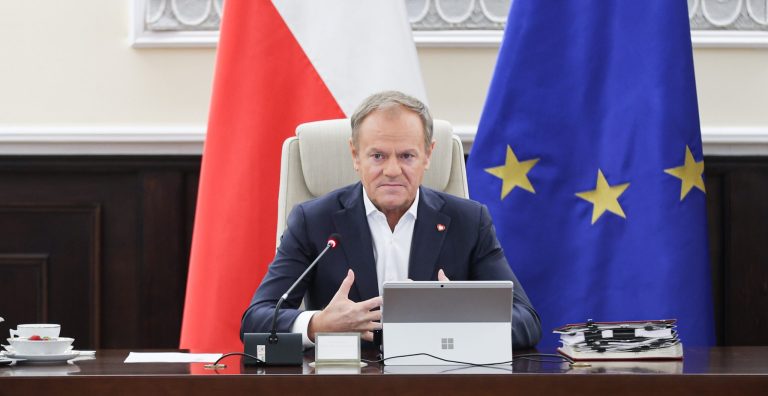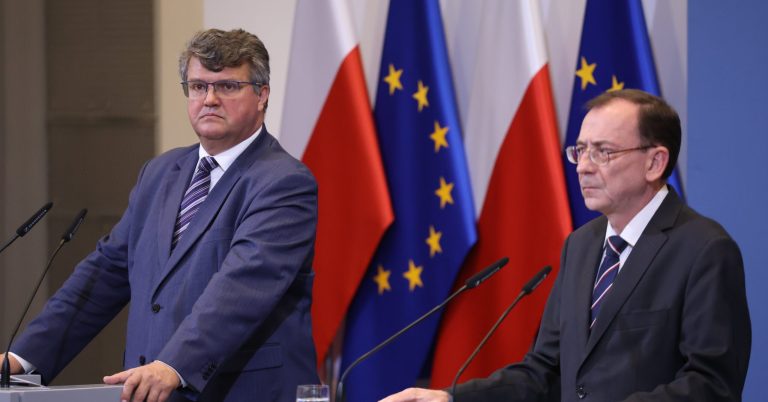Court accepts government’s move to put Polish Press Agency into liquidation

A court has officially registered the government’s decision to place state press agency PAP into liquidation. In doing so, the court official came to the opposite conclusion of two other officials from the same court, who last week rejected equivalent moves to put state broadcasters TVP and Polskie Radio into liquidation.
The development marks a further twist in the government’s controversial and contested actions to take control of public media. It says radical measures were necessary to “depoliticise” outlets turned into mouthpieces for the former ruling Law and Justice (PiS) party, but its moves have raised a number of legal doubts.
Today, an official known as a referendary at Warsaw’s district court approved a request to enter PAP’s liquidation into the National Court Register (KRS), Poland’s official company register. That in effect meant acceptance of culture minister Bartłomiej Sienkiewicz’s decision on 27 December to put PAP into liquidation.
💡Polska Agencja Prasowa SA w likwidacji
✅Otwarcie likwidacji #PAP wpisane do KRS pic.twitter.com/sB6SM130fG
— Katarzyna Bilewska (@KasiaBilewska) January 29, 2024
Sienkiewicz justified the liquidation of PAP, TVP and Polskie Radio on the basis that President Andrzej Duda, a PiS ally, had vetoed funding for public media. Duda had done so in response to an earlier move by Sienkiewicz to replace the management of public media, which PiS had condemned as unlawful.
The liquidation decisions were then submitted for registration in the KRS. Last week, two other referendaries at Warsaw’s district court refused to enter the liquidation of TVP and Polskie Radio into the KRS.
“The unprecedented nature of this case requires broader considerations and a thorough analysis of the provisions of specific laws, case law and doctrine,” wrote the court in a justification.
A court has refused to register the government’s move to put public radio into liquidation.
The decision was welcomed by the opposition, which says it shows the government acted unlawfully.
But the culture minister notes it can still be appealed https://t.co/Y0XxvcUhQm
— Notes from Poland 🇵🇱 (@notesfrompoland) January 22, 2024
However, Sienkiewicz noted that the referendaries’ decisions were not final and would be appealed against. In the meantime, the state of liquidation remains in place. The minister also noted that other courts had accepted his liquidation of some smaller local public broadcasters.
Following today’s decision, his ministry released a statement saying that it “confirms that the vast majority of court referendaries have no doubts about the actions taken in this respect by the minister”.
However, the Constitutional Tribunal (TK), a body widely seen as being under the influence of PiS, earlier this month ruled that using commercial law to implement changes in the management of public media or to liquidate them – the methods used last month by the government – is unconstitutional.
The constitutional court has ruled that the measures used by the government last month to replace the management of public media and then put them into liquidation are unconstitutional
The government responded by declaring the court’s ruling to be invalid https://t.co/IsK0Euuirv
— Notes from Poland 🇵🇱 (@notesfrompoland) January 18, 2024
But the government declared the TK’s ruling to be invalid because it involved a judge illegitimately appointed under the former PiS government and two others who had a conflict of interest due to being former PiS MPs.
Krzysztof Łyszyk, a lawyer specialising in commercial law, told legal news service Prawo.pl that today’s entry of PAP’s liquidation into the KRS was “interesting” in the context of the same court’s rejection of the liquidation of TVP and Polskie Radio.
However, he noted that court referendaries’ decisions regarding entry into the KRS are only “declaratory in nature” and that what will be “crucial” is how judges eventually rule on the dispute.
Many people in Poland who have never had to deal with a court to any degree are discovering that sometimes one rabbi will say „yes” and the other will say „no,” and occasionally both will be correct.
— Jakub Jaraczewski (@J_Jaraczewski) January 29, 2024
Notes from Poland is run by a small editorial team and published by an independent, non-profit foundation that is funded through donations from our readers. We cannot do what we do without your support.
Main image credit: Maciek Jazwiecki / Agencja Wyborcza.pl

Daniel Tilles is editor-in-chief of Notes from Poland. He has written on Polish affairs for a wide range of publications, including Foreign Policy, POLITICO Europe, EUobserver and Dziennik Gazeta Prawna.






